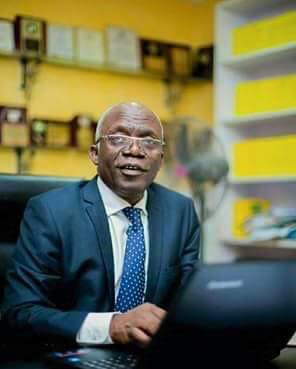Human rights lawyer, Mr Femi Falana (SAN), said on Monday that he knew a former governor in one of the South-West states who had a killer squad.
Falana, who spoke at the University of Ibadan, said the former governor’s killer squad was headed by a police officer, who was the Chief Security Officer to the then governor.
He said one of those killed by the killer squad was “a World Bank expert,” but he did not name the former governor in question.
Falana said one of the arguments against the creation of state police was that governors would use them to hunt their political opponents.
He, however, maintained that state police remained the solution to Nigeria’s insecurity problem.
Falana stated this at the maiden memorial public lecture in honour of the late Prof. Olumuyiwa Awe at the Trenchard Hall, University of Ibadan.
He said, “Many citizens are opposed to the creation of state police for the fear that it may be used to haunt political opponents of some state governors. I know a state governor in the South-West who once had a killer squad headed by his Chief Security Officer, a police officer.
“One of the unarmed citizens mowed down by the illegal squad was a World Bank expert. All efforts to prosecute the suspects have been frustrated by the state government. The story is the same in a few other states in the country. To that extent the fear of the possible manipulation of state police is genuine.
“To avoid a situation whereby abuse of police powers is decentralized, any security service established by state governments should be democratically controlled. The service will be founded by the state governments and superintended by an independent state police council of five members. The members of the council should be accredited representatives of the state government, labour, women, youths and the business community.
“The service will police the state and see to the enforcement of all the laws enacted by the House of Assembly. The success of the civilian Joint Task Force in the counter-insurgency operations in Borno State has proved that the best way to police a country is to recruit, train and equip young men and women to operate in their own communities.
“The colonial practice of posting police personnel to operate outside their states or regions was meant to suppress and intimidate colonial subjects by strangers. It is a practice which has become counter-productive in a post-colonial state. Every police officer should operate in their community, speak the local language and mix freely with the people.”
On the local government crisis in Oyo State, Falana said the solution was for the state government to speed up the holding of local government election because “the system of local government in Nigeria should be by democratically elected councils. Caretaker committees are unknown to the constitution.”
On the council chairmen who were elected on May 12, 2018 in the state, he said, “Once they had been elected they have to serve their tenure. And if you are not going to allow them to serve their tenure, you will have to pay them off; that is the position of the law.”
The Attorney General of Oyo State and Commissioner for Justice, Prof. Lowo Oyewo, noted that constitutional democracy in Nigeria had a narrative that was unhealthy, saying, “it does not accommodate divergent logical views that can be analysed for the benefit of all of us. That narrative must change.”
Among those who were present on the occasion were wife of the late Prof. Awe, Prof. Bolanle Awe; Emeritus Prof. Oladipo Akinkugbe; Chief Oluwumi Oni; Prof. Ayo Banjo; representative of Prof. Idowu Olayinka, the Vice-Chancellor, UI, Prof. Olanike Adeyemo; deans of faculties and heads of departments.













